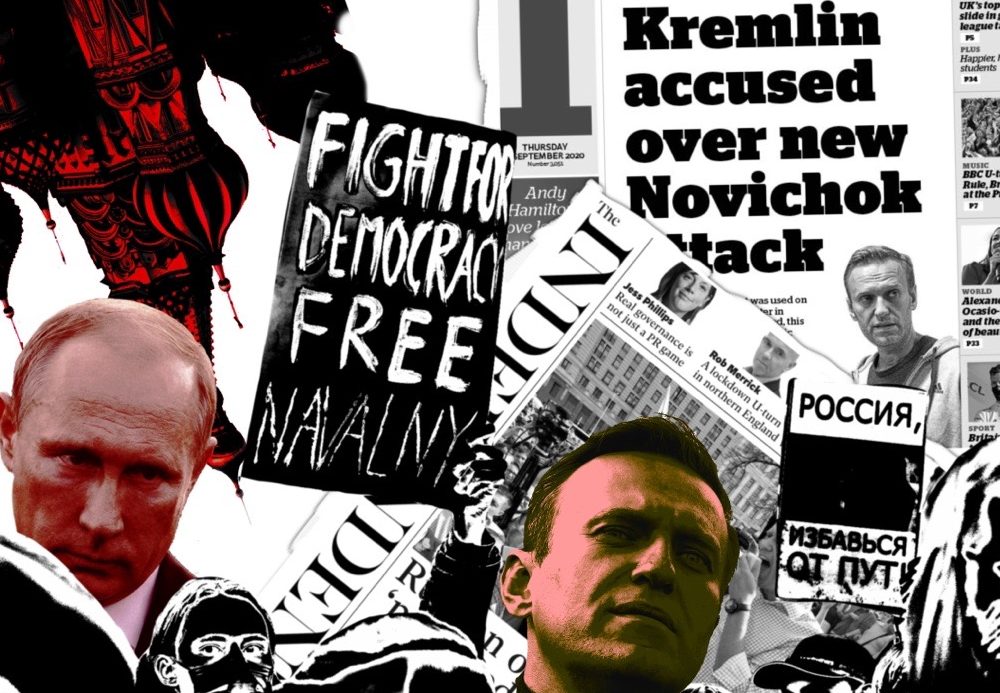All international eyes are looking at Russia and the decisions the Putin administration makes in the case of Alexei Navalny – the most vociferous Putin critic and ‘the man who Putin fears the most’. Navalny is undergoing his jail sentence in a Russian penal colony and has just recently ended a three-week hunger strike that has left him looking like a “skeleton, swaying, walking in its cell.” He has made great sacrifices including putting his health in jeopardy. Will his sacrifice be worth the prize? Is Navalny able to change the Russian political scene, win against corruption and eventually put an end to Putin’s presidency? Theoretically, there are two ways in which the present situation could unfold. Realistically, it seems that the West and Russia have two disparate views of Navalny, Putin, and the future of Russia.
What has Navalny done?
The political career of Navalny took off in 2011 when Vladimir Putin announced his attempt at re-election. Angered with the idea of Putin being in power yet again, Navalny led anti-Putin protests, considered the biggest since the fall of the USSR. In 2011 he started his Anti-Corruption Foundation, which investigates the wealth of Russian oligarchs, seeking to stop the misuse of budget money. Since the very start of his activism, Navalny has used the Internet heavily to communicate with supporters, repeatedly proving the scale of his potential to reach and mobilize people. In comparison, the online sphere has practically never been utilized by the Kremlin – it is not its target and the Putin administration has no interest in making a social media appearance. After all, the public approval for Putin continues to be strong at 65% in February 2021. The majority of those approving of Putin’s presidential activities either do not search for independent news on social media (being fully reliant on the state-owned news channels) or are not active in the online sphere. In other words, the Kremlin does not have a lot to gain from building an Internet presence.
While in Siberia last August, Alexei Navalny was served a Soviet nerve agent, which led him into a coma then receiving treatment in Berlin. He later accused Putin of orchestrating the poisoning, claiming that Russian intelligence officials applied the poison to the inside seam of his underwear. Earlier this year, he published a video investigating Putin’s alleged ownership of a luxurious Black Sea palace, purchased with illicit funds from ‘the biggest bribe in history’. The video achieved an unprecedented reach garnering over 100 million viewers. As soon as Navalny returned to Russia, he was sentenced to 2.5 years in a Russian penal colony, where he remains at the moment. His detention initiated a series of mass protests nationwide and triggered international sanctions from the US and EU. After being refused a doctor’s visit, his hunger strike began and lasted for three weeks. The decision to end the strike was made after a visit from a non-prison doctor, who warned him that carrying on could have a fatal effect. Faced with death, Navalny backed out. But is his death what Putin wants?
Putin’s Russia under threat?
With all countries closely watching Russia, it is unlikely that Navalny will die while in jail. It would not particularly be in Putin’s best interest as the White House has already warned of consequences should he die in custody. With the Russo-American diplomatic relations already difficult, it would be surprising to see Putin let that happen. What we could expect to see instead is Putin allowing Navalny to drive himself to the very edge of endurance, only to offer him a deal where he leaves Russia and pledges never to return. After all, what matters to Putin is that Navalny is kept on the outside and loses the moral authority to continue the fight.
Nonetheless, a downside of this strategy is that, by imprisoning the Kremlin critic, Putin is building Navalny’s image as the oppressed symbol of freedom. Although the West sees this as a grave mistake for Putin’s administration, the fortuity of Putin’s actions is questionable. Rather, Navalny could very well be a distraction to turn people’s heads away from the real problems of Russia: rising food prices, poor quality of medical care, and low quality of life in general. The majority of the public does not attribute those problems to corruption, not recognizing the existing link. Whereas, those who do risk only speaking to people within their own bubble, as the masses supporting Putin are not being reached via the online means of information sharing (or they simply do not believe them).
Hopeful spectators and young changemakers
The West hopes that the Kremlin will sooner or later give in to the pressure of protests and international sanctions, opening room for negotiations on the future state of Russia’s politics. Keeping in mind that Putin has survived many protests before, the Navalny protests – despite their unpredictability – may not have any lasting effect on the administration. Even with numerous sanctions placed on Russia, Moscow continues to claim that they are hitting the West much harder than Russia. In fact, the Russians are so accustomed to their country being sanctioned from all directions that they lose track of who is sanctioning them and what for.
Looking at the Russian political landscape from a different perspective, the national polls suggest that young Russians (below the age of 35) are increasingly discontent with the current situation in their country. Putin’s support is also plummeting in the 18-24 age group as they lose connection to the current president and his vision of Russia. This trend can certainly be linked with the younger generation being more active on social media, and therefore the effect Navalny’s activism may have had on the change in their views.
Change is surely coming to Russia, but it will be a slow one. The current challenge is not merely a matter of discrediting Putin, rather a mission of bringing a systemic change that will come with the generational shift. For anything to change before then, the public would have to realize where the public money is going and the scale of opportunity its people are being stripped off. Turning Putin’s supporters against the Russian president requires a plan broader than activism on social media.
Navalny is and will undoubtedly remain a symbol of the opposition, but the moment that crystalizes the public frustration is yet to come. Until then, we are likely to see more of Putin’s forceful attempts at remaining in power, no matter the cost. Ronald Reagan once said that regimes planted by bayonets do not take root, and I do not disagree – I only think that weeding the Russian political garden may take longer than the West would have liked.
MA Public Policy Alumna at King's College London, works in consulting.






0 Comments